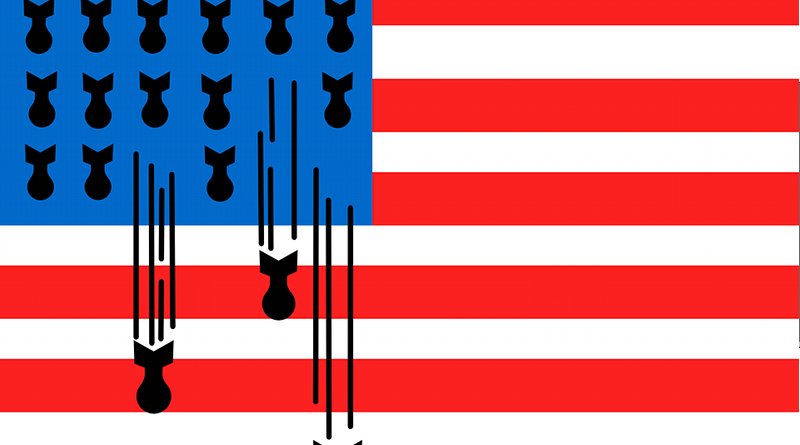The US Security Trap: How US Dominates The World And Marginalizes Europe – OpEd
By Greg Pence
Charles Freeman, a former US diplomat, criticizes his country’s foreign policy: “We resort to threats, harassment, sanctions, naval deployments, and bombings, but we never try to persuade or reach a compromise with others.” He describes this as a global problem, a refusal to use any means other than coercion to impose one’s will, regardless of its legitimacy.
This view is echoed by the spokesperson of China’s Ministry of Defense, who recently denounced the US role in the Gaza conflict and the world’s turmoil: “The US is addicted to war. Out of its 240-year history, it has only been at peace for 16 years. The rest of the time, it has been at war… The US has over 800 military bases in 80 countries around the world…”
As the world edges closer to a state of war among all, or a third world war, a crucial event is emerging. The US-led world and international order is not one of peace, diplomacy, and balance of power; It is a unipolar, unilateral order of domination that endures others as long as they comply. Since World War II, the US has tried to overthrow 50 elected national governments in different countries for the offense of pursuing policies against the White House’s wishes.
Meanwhile, not only Europe does not enjoy the Metternich’s balance of powers, but also the United Nations’ common security system is nowhere to be seen and NATO is not a means of preserving order. What prevails is the logic of domination and war over peace. As a result, we are witnessing a shift from a diplomatic domain to a military one.
As the game rules change, the actors who can use peaceful means and foster a moderate balance system based on trade and cultural-diplomatic ties to ensure peace are sidelined. This marginalization has various motives. It affects the European Union and its member states as well. In US politics, we see the exclusion of potential challengers. Moreover, the issue of security creates a situation that not only traps Europeans in the US hegemony but also generates new security challenges over time. Europe, which attempted and even achieved an indigenous European collective defense system in 1985 with François Mitterrand’s efforts, is now reduced to issuing press statements by its leaders, at best, to display some autonomy. These statements are mainly aimed at concealing their complete reliance on the US from the domestic and international audiences.
The US dependency policy does not resolve security crises, but rather aggravates them and creates new ones. Russia’s case illustrates this US security trap in the strategy of containing potential global rivals. Russia, which sought to join NATO and end its conflict with the US during the Clinton era, was not only rejected but also faced a long-term blockade strategy that led to the war in Ukraine. The logic of the war in Ukraine is clear: the diplomatic domain must be replaced by a military one so that NATO can demonstrate European subordination and the US can convince its European allies that they need its protection. The diplomatic initiative must always belong to the US, and the Europeans are not actors, but pawns, in the service of the US war machine.
This problem has also manifested itself in areas where diplomacy had a role: the US held more than 9 rounds of direct talks with the Taliban without involving any European partner who had troops in Afghanistan under NATO and then handed over Afghanistan to the Taliban without consulting the other side. Similarly, in the JCPOA negotiations, which were hailed as a diplomatic success in the 21st century and where the Europeans had a role, the US withdrew and proved that it was the sole arbiter of security matters, not Brussels. Europe, meanwhile, bears the brunt of the US’ endless wars in the Middle East and North Africa, which spill over its borders as a surge of migrants, refugees, and homeless people, as well as human trafficking networks and security-economic and human costs.
Let us remind ourselves that the new order is simply “the shift from a diplomatic to a military game”, in which different countries are mere toys that have no choice but to obey or resist. And if they resist, the US democracy has its ways of punishing the defiant country!

